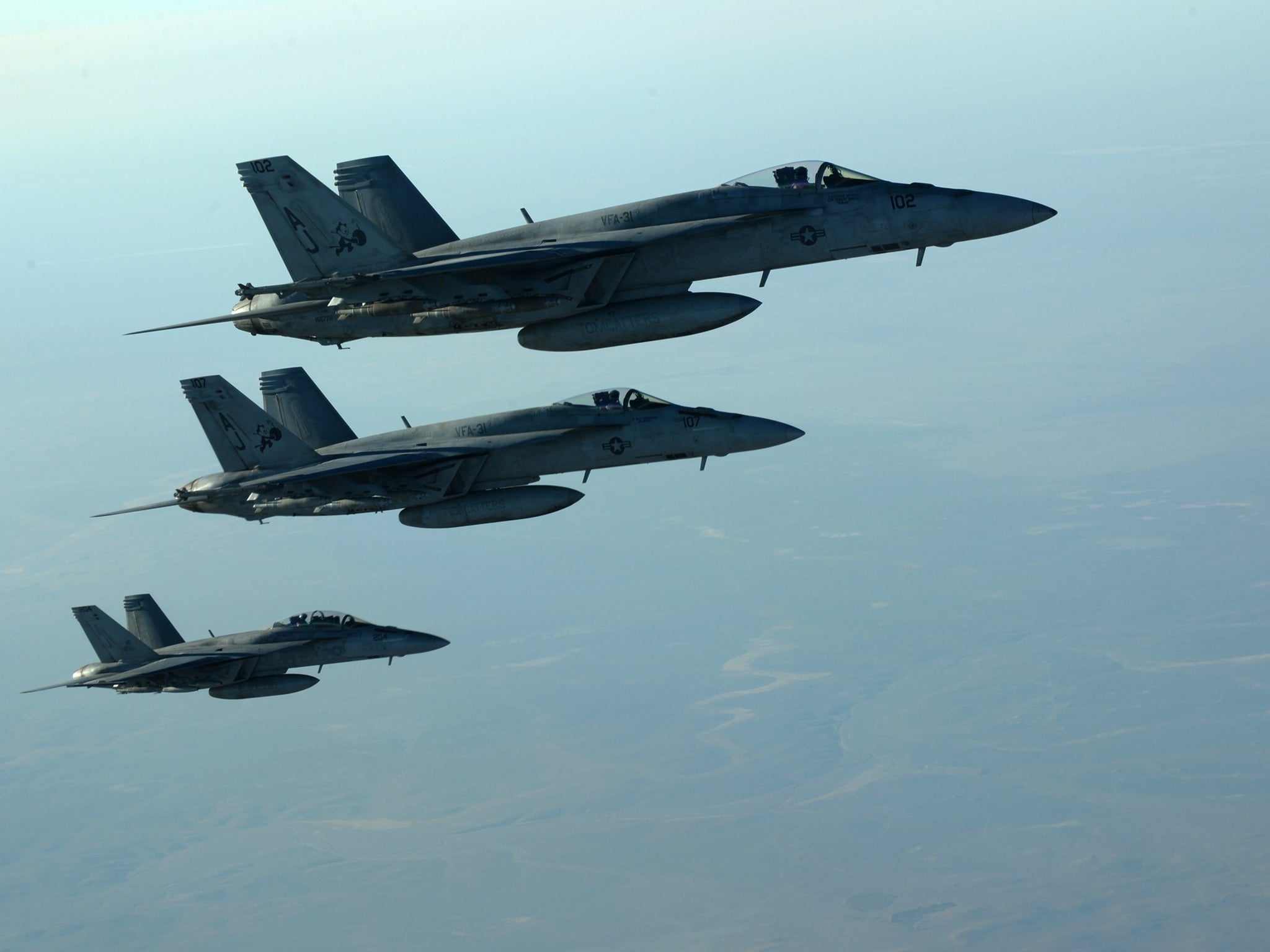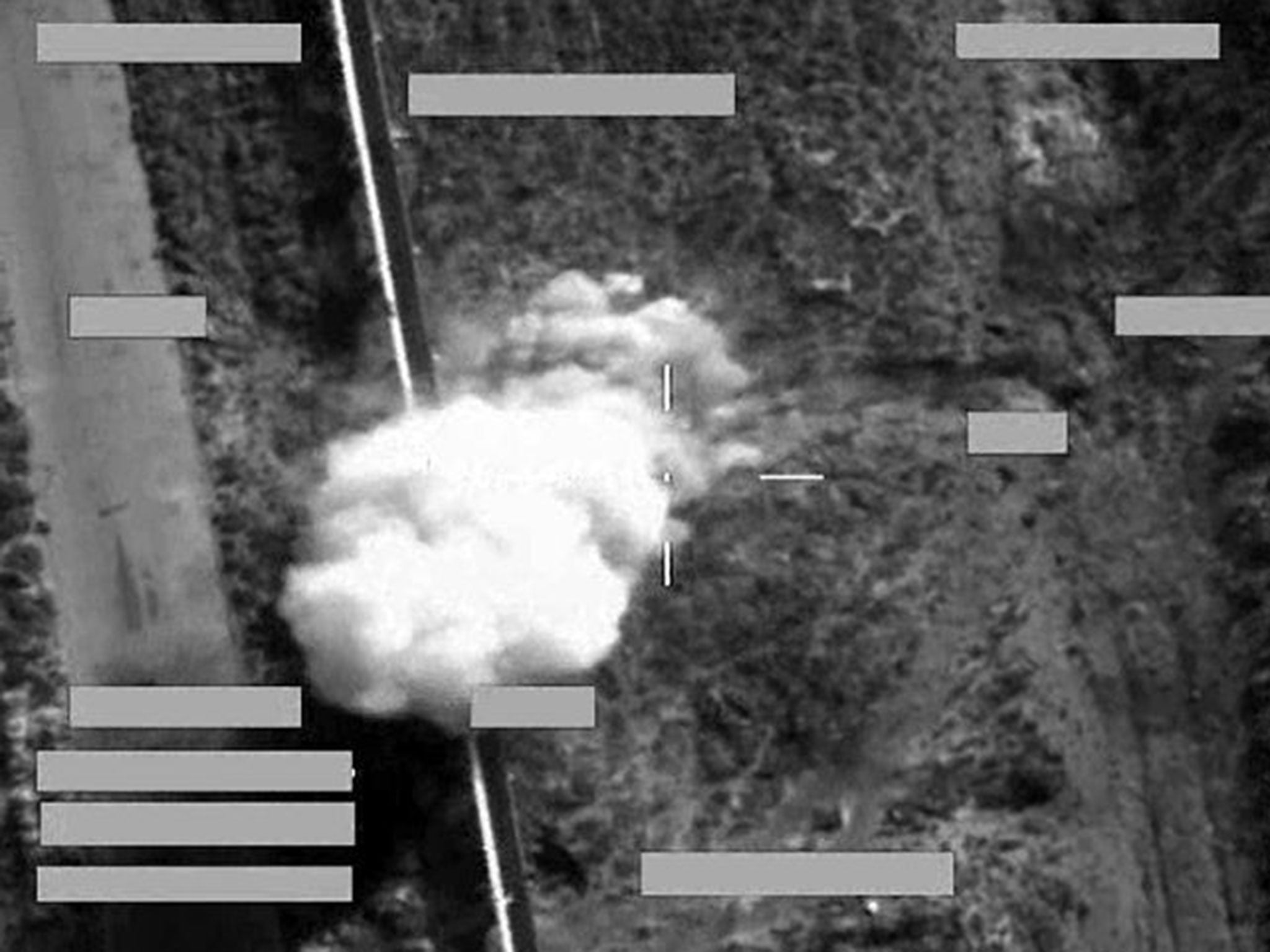Iraq crisis: British jets drop bombs on Isis, helping Kurdish fighters battling the militants
Tornados hit two targets, raising fears for life of hostage Alan Henning

Britain carried out its first military action in the war against Isis today, dropping bombs that are believed to have killed a number of their fighters.
Tornado GR4 jets destroyed a mortar position which was being used to attack a post of the Kurdish militia, Peshmerga, in north-west Iraq and then hit a heavy machine-gun-mounted truck carrying militant reinforcements being sent to the frontline.
The attacks came on the sixth set of sorties the RAF have carried out since the House of Commons voted overwhelmingly to back the latest Iraq mission.
The previous flights had returned to the base in Akrotiri, in Cyprus, without using their weapons but gaining valuable information about the insurgents, the Ministry of Defence said.
Hundreds of air strikes carried out by the US and its allies had already destroyed the vast bulk of Isis bases and storage facilities. Targets on the ground had been hard to come by for the RAF since the combat flights began last Saturday.
Earlier in the day, Philip Hammond, the Foreign Secretary, said British forces would not be “panicked” into dropping bombs by reports of gains by Isis troops in Iraq.
Rivet Joint spy planes, based in Qatar, have been carrying out surveillance missions for weeks. But the air raids and likely deaths of Islamist fighters will now bring the UK into direct conflict with Isis.
French air strikes in the early days of the campaign resulted in the organisation calling on Muslims to carry out attacks in Paris.
Isis has paraded British hostage Alan Henning, a taxi driver from Manchester who ferried aid to Syria. It is feared he will be the next one to be beheaded after the murders of three other prisoners. His wife Barbara has made repeated pleas for his life on television.
Another hostage, photojournalist John Cantlie, has appeared on videos produced by Isis criticising, seemingly under coercion, the current Western military campaign.

The Tornados used a Paveway IV guided bomb to hit the Isis post, followed by a Brimstone missile on the truck. The exact location of the strikes was not made public, but the Peshmerga had been carrying out a prolonged offensive to recapture Rabia on the Iraqi border. By late afternoon they claimed to have captured the town, but were facing counter-attacks from the Islamists. The vote in Parliament last week restricted the military mission to Iraq, although David Cameron stated that he would consider extending the mission to Syria.
Defence sources stressed there were no plans to carry out “hot pursuit” of fighters and convoys into Syria although they acknowledge the border has effectively ceased to exist for weeks.
The Defence Secretary, Michael Fallon, said: “I can confirm that the RAF were in action today in support of Iraqi government. Both Tornados have now returned safely to their base, and initial assessment is that both the attacks were successful. The initial assessment is that both the targets were destroyed. The Tornados are operating under very strict rules of engagement, obviously to avoid civilian casualties. Halting the advance of Isil [Isis] and helping the Iraqi government turn it back, and helping the Iraqi army and Kurdish forces do that, is a huge task and it is going to be a long campaign.”
British troops are expected to be sent to Iraq to train the country’s forces. American special forces and a small number from the SAS and SBS as well as French forces are also gathering intelligence.
There have been calls to put forward air controllers on the ground to call in raids by warplanes, but that is unlikely to take place in the immediate future, say military sources.
Join our commenting forum
Join thought-provoking conversations, follow other Independent readers and see their replies
Comments
Bookmark popover
Removed from bookmarks